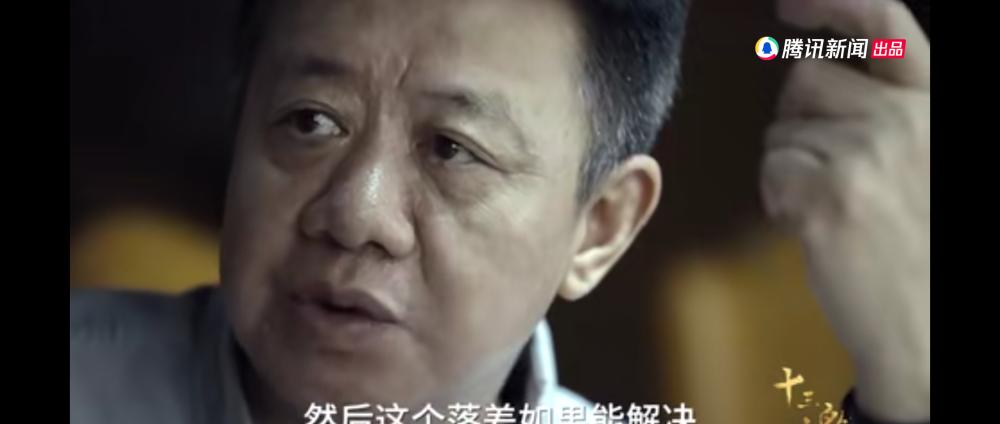Idle, these two days watched several issues of "Thirteen Invitations", Liu Qing, Ge Zhaoguang, Yang Yang, Zhang Chu, Wu Mengda, Harari.
Liu Qing studied philosophy, but there was a rare optimism and calmness in him, which completely changed my stereotype of people who studied philosophy. In particular, he said that the understanding of today's young people and society, including the reluctance to participate in team building, is due to negative liberalism, and needs a small space to control the sense of self. When it comes to the diversification, refinement and standardization of contemporary society, it actually erases a lot of the possibility of barbaric growth. For the current understanding of society and human nature, I have to say that Liu Qing is actually quite grounded.

Ge Zhaoguang is a researcher of history and is very erudite, and I deeply agree with some of the views he put forward. Including: don't complicate things, many of the so-called profound ideas are actually added by later generations. It is necessary to understand historical figures in the context of historical figures. The so-called ideological and cultural differences are actually caused by differences in structural frameworks. Don't always emphasize the same similarities, but dig into different differences. Studying history is not about providing solutions, it's about finding the root causes. Thirteen invited to watch so many issues, this should be one of the issues that particularly impressed me, and I have to admire the calmness and wisdom of the historian. He said that the prosperity of mediocrity, said to pay attention to the feelings of the people, of course, is very related to his experience. He was really surprised that he asked the People's Liberation Army at the train station for cigarettes and food, and a famous historian actually gave up his dignity completely for the sake of cigarettes when he was young. Like he said himself, self-esteem can be completely let go. Because of this experience, he is not a high-ranking scholar, but a historical researcher who especially understands the cold and warm of human feelings, and will not stick to the rules, nor will he only study the history of the elite.
The wonderful thing is that the first two are scholars, which is more laborious to look at, and then pick an Olympic champion to see. Overall it felt very relaxed because the girl was very optimistic and well-targeted. I suddenly felt that this personality was a magic weapon for surviving well in any environment. After she retired, she not only ran a ski-related sports organization, but also set up a small organization for retired athletes. Such a person lives a full and full life.
After that, I picked a singer Zhang Chu, who was also very good. Living very soberly, retaining the innocence of a child, he can easily find the right way to deal with the world for the present and the self. He did not give up his ego, nor did he confront or complain about the world. And I know very well that I am a quiet little corner in this world, and I don't want to struggle too much in this chaotic world.
Wu Mengda is undoubtedly the most down-to-earth one in this pile, very sincere, and very interesting to talk. He calmly talked to Zhou Xingchi and Du Qifeng about his unhappy and unpleasant past, talked about his disgraceful past of gambling money, and talked about his inability to become famous. He said that when he was young, he had no wisdom, and when he was old, many things were naturally put down, and he was satisfied with three meals.
Finally, there is a recap of Harari, the author of A Brief History of Mankind, a very intelligent Jew. Xu Zhiyuan did not like the ideas in his book, felt that he was instilling a one-way concept, and more importantly, that he looked down on humanism. So in the process of interviewing, tell each other again and again: your point of view is too one-sided and problematic. Haven't you ever reflected? I have read a limited number of books, and I don't think much about humanism. However, as an interview, I think Xu's interview was a failure.
Just search for it and you'll know Harari's style and his dreams. Simply put, the books he wrote are not for scholars to read, but for the general public, so many things are not for you to study deeply, and "A Brief History of Mankind" is more of an inspiration for me, or an ignition of interest in human historical exploration. In this respect, Harari's purpose was achieved. Xu read the book from the perspective of studying humanities and history, hoping that the author would reflect on the limitations of the book. It can be said that the two have completely different channels. Xu also made a special trip to Israel to find the answer from the place where the author was born. There is a posture of studying a historical figure to understand the historical figure in the time and space he is in.
But the irreconcilability between these two people didn't make me understand the interviewee more, and this issue seemed to me to be a failure.
It doesn't matter what industry you're in, what you focus on. The "Thirteen Invitations" I watched in the past two days made me see the wisdom of the elderly and the wisdom of life. I also remembered liu Qing again that the impulse of youth is actually a waste of energy a lot of times. Why do you understand so much truth and live a bad life? Liu Qing said that because those truths are not your own, but other people's, experiencing experience is growth, and you will truly understand those truths, not others telling you.
Let's take this as a footnote to watch "The Thirteen Invitations" these two days.